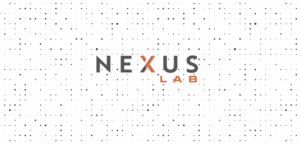The Great Convergence: Attention Span vs. Confirmation Bias
We are witnessing an unprecedented convergence of attention span and confirmation bias. Let’s get right into it.
Attention Span Evolution
Social media organizations, news media outlets, TV content providers, audio streaming platforms, technology giants, and a plethora of other information mediums are amid an intense war. A war on attention. In a time where data is the most lucrative and sought-after commodity on earth, attention equals revenue. But this battle has resulted in an unintended yet profound consequence. A rapid decline in the human attention span. In fact, our attention span has….wait, what was I saying?
According to research, our attention span has dropped from an average of 12 seconds in the year 2000 to less than 8 seconds today. There are just too many forms of information outlets that uniquely capture our attention. We bounce around from device to device and app to app searching for that dopamine spike. This is the very reason why Twitter exploded onto the scene utilizing a platform founded on character limitation. It is the reason most news outlets now have content summary bullet points at the top of articles. It is the reason why the average length of a song has dropped from 250 to 215 seconds (that and the streaming revenue basis).
In the spirit of avoiding cognitive bias, there are arguments that our attention span is not declining, it is evolving. Take for example Netflix. We have no problem binge-watching a new series for hours on end with extreme focus. The foundation of the argument is that our ability to maintain focus on content is actually improving as we become more selective about what we devote our attention to. In other words, we are allergic to boredom but have no problem being attentive if we are truly engaged and visually stimulated.
So, which is it? I believe our attention span is evolving and shrinking simultaneously. They are not mutually exclusive arguments. When merging the two concepts, you find a person binge-watching Netflix while also scrolling through their Instagram feed. Tell me that is not a common occurrence? I believe that our general ability to be attentive is declining. This is evidenced by the fact users read at most 28% of the words on a web page or article. Damn, I may be writing this for an audience of 0.
Confirmation Bias
Confirmation bias can be insidious. It is a flaw in the human condition. How many times have you gone straight to a source that agreed with you and felt more empowered in your opinion or belief? Screw those other sources that contradict your existing mindset. Yet, an adamant belief that something is true when it indeed is not, can lead to harmful or irrational decision making, complicated relationships, and ignorant behavior.
There is no greater source of confirmation bias than a Google search. Search engines epitomize confirmation bias. If you only watch TV channels, read books, and generate search terms that are designed to agree with your existing beliefs, you are living in an ignorant bubble. It is inherently easier to dull yourself from reality rather than go to great lengths to gather copious forms of information and evidence and apply critical thinking and reasoning.
This is perhaps best evidenced by the ongoing climate change debate. If over 99 percent of climate scientists agree that climate change is real and caused by humans, why do so many Americans align with the 1%, creating a significant divide? Confirmation bias. Those individuals have rooted long-standing beliefs that climate change is not real, or that it is not caused by humans, and can easily confirm such beliefs via a Google search or through like-minded social media communities. However, if you ask those same people to thoughtfully consider how they came to such beliefs, and provide supporting evidence, you typically find deflection or illogical arguments rooted in more confirmation bias.
Next time you find yourself saying “I read an article that said…”, stop and ask yourself if your belief is truly informed.
The Great Convergence
So, what happens when these two concepts converge together? An incredibly divisive society.
We have entered an era where our declining attention spans are empowering greater confirmation bias than ever before. Our beliefs and opinions are increasingly shaped and confirmed by simple headlines, short Twitter posts, single images, and brief conversations. Our desire and ability to offer adequate attention to gathering evidence, identifying and dismissing bias, and researching multiple sources of information is no longer. This is resulting in an era of misinformation, surface-level opinions, a decline in cognitive reasoning, and a decrease in social engagement with those of differing views.
Thus, I challenge you. I challenge you to spend a little extra time further educating yourself on your status quo beliefs. Open yourself up to explore differing opinions from colleagues and friends. Train yourself away from your passionate beliefs and move to be governed by facts and statistics. Doing so will empower you to feel confident in any conversation, and most importantly, pay it forward.
- Establishing EPC Contracts Suitable for Today’s Sustainable Infrastructure Projects - March 4, 2022
- Understanding The EPC Contract: Pricing - October 14, 2021
- Nexus PMG Announces Strategic Reorganization to Satisfy Demand for Construction Monitoring - June 24, 2021


